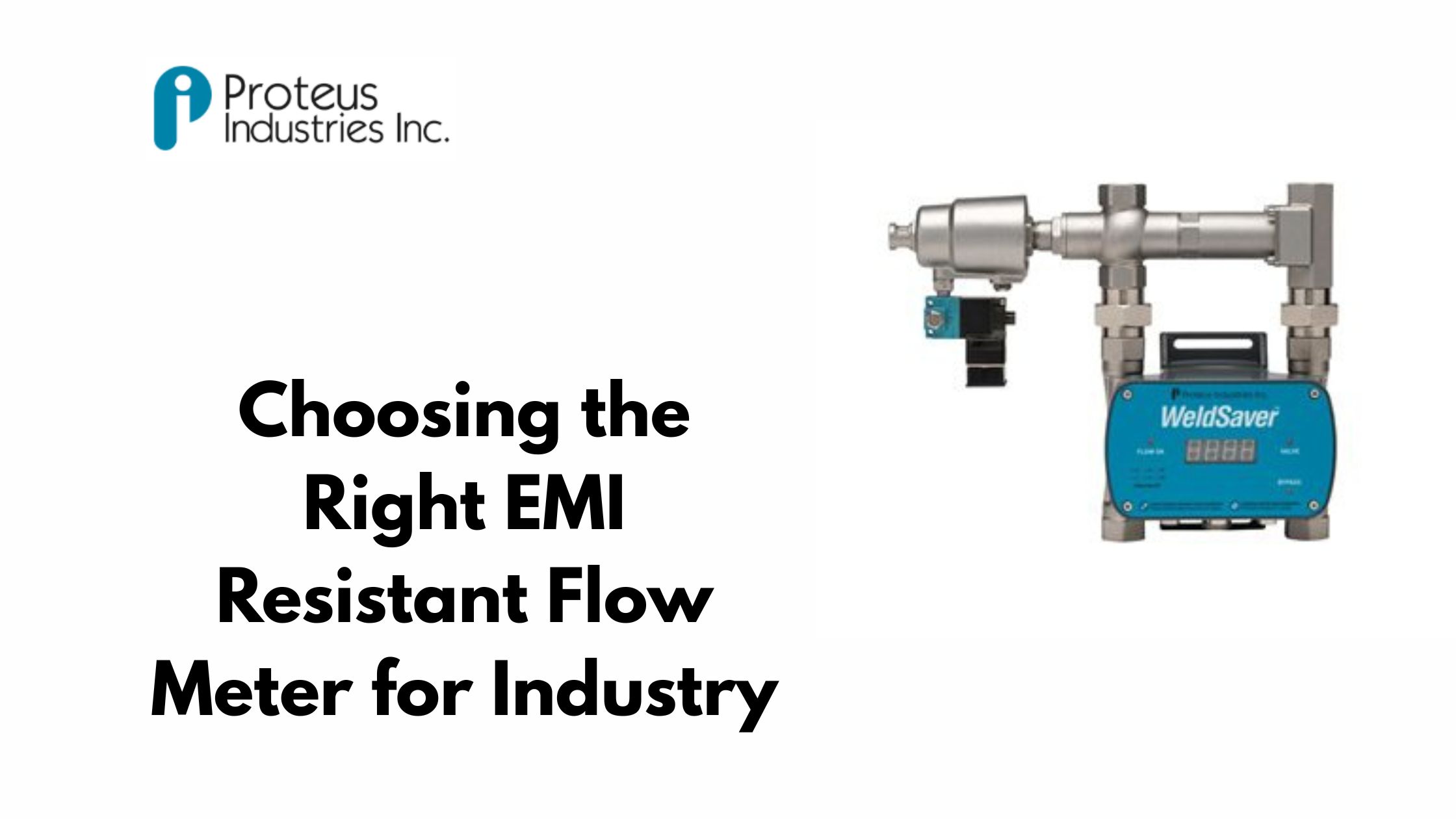Flow meters are essential for measuring liquid or gas flow in industrial processes. However, electromagnetic interference (EMI)—often caused by equipment like motors, variable frequency drives (VFDs), and radio-frequency devices—can significantly impact measurement accuracy. When exposed to high EMI environments, standard meters may deliver erratic or unreliable readings. This can lead to safety risks, process inefficiencies, and compliance issues. Choosing an EMI resistant flow meter is crucial to maintaining accurate, stable performance in such settings. These specialised meters are designed with shielding and filtering technologies to minimise noise and signal disruption. Whether operating in chemical plants, manufacturing facilities, or power stations, using the right flow meter ensures consistent process control and data integrity under harsh electrical conditions.
Understanding EMI and Its Industrial Impact
Electromagnetic interference (EMI) is unwanted electrical noise generated by industrial machinery such as motors, VFDs, transformers, and wireless devices. It travels through cables, power lines, or radiates through the air, potentially affecting sensitive instruments. In the context of flow measurement, EMI can corrupt sensor signals, distort readings, and even cause complete failure of data transmission. This compromises the efficiency, safety, and regulatory compliance of industrial systems. In high EMI environments, these problems are exacerbated. That’s why selecting an EMI resistant flow meter becomes a necessity. These meters are engineered with shielding, grounding, and digital filtering capabilities that block interference and ensure accurate performance in the most electrically noisy environments.
Key Features of EMI Resistant Flow Meters
An EMI resistant flow meter incorporates several advanced features to maintain signal clarity and accuracy in high-interference settings. Key components include noise immunity and electromagnetic shielding, which block external electrical noise from distorting the signal. Digital signal processing (DSP) enhances signal stability by filtering out noise and amplifying the true measurement. These meters also deliver stable output even in the presence of variable frequency drives or RF equipment. Rugged IP or NEMA-rated enclosures protect against environmental and electrical exposure. Some models also offer custom calibration, ensuring accurate performance tailored to your fluid properties and temperature conditions. These features collectively ensure reliable, uninterrupted measurement across diverse and demanding industrial applications.
Factors to Consider When Selecting a Flow Meter
Choosing the right EMI resistant flow meter involves evaluating multiple parameters. Start with the type of fluid—viscosity, conductivity, and cleanliness—as well as the expected flow rate range. Assess the temperature and pressure limits to ensure compatibility with your operating conditions. Signal output compatibility (such as 4–20 mA, pulse, Modbus, or HART) is vital for seamless integration with control systems. Consider the installation environment—whether it’s outdoors, subject to extreme EMI, or exposed to corrosive substances. Finally, verify if the meter meets industry-specific standards or certifications like ATEX, NSF, or ISO. A meter tailored to your system’s physical, electrical, and compliance requirements will ensure accurate, long-lasting performance.
Application-Specific Recommendations
Different EMI resistant flow meters suit various applications. Magnetic flow meters are ideal for conductive fluids and offer excellent noise immunity. Turbine flow meters with shielded outputs perform well with clean, non-corrosive liquids in high-speed applications. Ultrasonic flow meters, especially those with DSP, are optimal for non-intrusive measurement and perform reliably in noisy electrical environments. Industries such as chemical processing, water treatment, food and beverage, pharmaceuticals, and power generation commonly face EMI challenges and benefit from specialised meters. Selecting the right meter type based on both fluid properties and EMI levels ensures consistent data accuracy and robust operation, even in the harshest industrial conditions.
Top Benefits of Using the Right Flow Meter
Investing in a high-quality EMI resistant flow meter offers multiple long-term advantages. These devices deliver accurate and uninterrupted data, ensuring process consistency and early fault detection. By minimising measurement errors, they contribute to enhanced safety and regulatory compliance, especially in sensitive sectors like chemical and pharmaceutical manufacturing. Reliable performance in high-EMI environments also reduces downtime and maintenance, saving both time and labour. Furthermore, their robust design leads to long-term cost efficiency, eliminating the need for frequent replacements or recalibrations. When precision and reliability matter, especially under electrically noisy conditions, choosing the right flow meter helps maintain operational excellence and business continuity.
Maintenance and Calibration Tips
To ensure your EMI resistant flow meter maintains optimal performance, regular inspection and calibration are crucial. Clean electrical connections and sensor interfaces to prevent grounding issues. Schedule periodic calibrations, especially if used with fluids of varying temperature or conductivity. Inspect shielding and enclosures for wear or damage, especially in high-EMI zones. Avoid routing signal cables alongside high-power lines. When needed, reconfigure digital signal processing settings to maintain accuracy in evolving conditions. Follow manufacturer-specific guidelines for servicing and recalibration. Proper upkeep not only extends the meter’s lifespan but also guarantees uninterrupted data flow in the most demanding environments.
Conclusion
Electromagnetic interference is an unavoidable challenge in modern industrial environments. From motors to RF systems, EMI can compromise flow measurement accuracy, leading to safety and operational issues. That’s why investing in an EMI resistant flow meter is essential for industries that rely on precision and reliability. These meters combine shielding, digital filtering, and rugged design to provide uninterrupted performance in noisy environments. By selecting a model based on your specific process parameters and environmental challenges, you can ensure better control, reduced downtime, and regulatory compliance. Make the smart choice—choose an EMI-resistant solution that aligns with your industrial needs and long-term performance goals.

